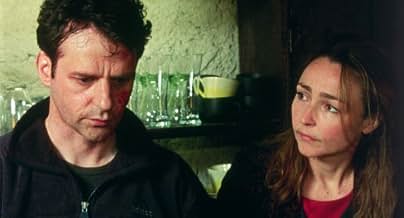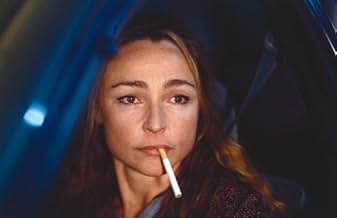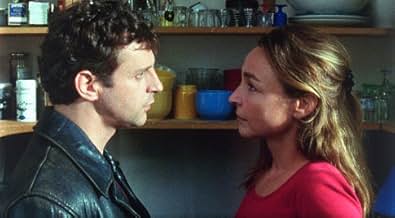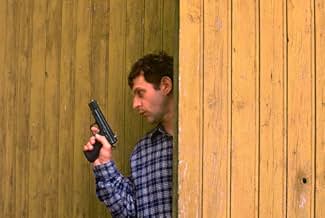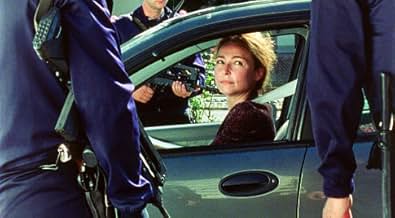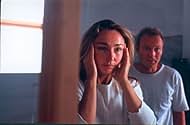If he didn't exactly invent/patent the concept of the trilogy using the same event(s) setting(s) and characters then Alan Ayckbourne certainly exploited it to the full and will be forever associated with the genre via such plays as 'The Norman Conquests' and 'House', 'Garden'. Lucas Belvaux borrows the concept and applies a touch of spin. In the Ayckbourne works the characters tend to have equal weight in each play so that when one walks offstage in a play set in the Living Room he/she will walk ON stage at the same chronological moment in a play set in the Garden. With Belvaux leading players of one part of the trilogie are reduced to spear-carriers in others. The PR says that each movie stands alone and may be viewed in any order. Yes and no. Perversely I saw them in reverse order, 3, 2, 1 and though it WAS clear what was going on it would certainly make for a richer viewing to see them sequentially. One: This introduces - however fleetingly - all of the principals but it is primarily the story of Bruno Le Roux (Belvaux himself) a political prisoner or terrorist depending on your point of view, who has busted out of the slammer and come to Grenoble to cut up a few old touches. Catherine Frot gets the Lion's share of the supporting roles as Jeanne Rivet who, 20 years ago, was part of the Revolutionary movement alongside Le Roux but now doesn't want to know. She is now teaching school and two of her colleagues, Agnes Manise (Dominique Blanc) and Cecile Costes (Ornella Muti) will figure peripherally in One and star in Two (Muti) and 3 (Blanc). Also important to the plot is Jacquillat (Patrick Descamps) an underworld character. Whilst on the lam Bruno stumbles across a man beating a woman savagely. He intervenes, realizes the woman is a junkey and the man a dealer. He beats the man and invites the woman to help herself from the dealer's stash. However, with cops crawling all over she has to dump the dope. She confesses to Bruno that her husband, a detective, has been supplying her for years but suddenly stopped. She takes Bruno home with her (husband is on the graveyard shift) and then borrows the key to a holiday chalet from a colleague (Muti), who is not best pleased to become involved in what she assumes to be a sordid liaison. Cecile has her own problems, a husband behaving erratically and she prevails upon Agnes cop husband, Pascal, to investigate. We now know all we need to enjoy (or not, as the case may be) Two: (the story of Cecile and erratic hubby) and Three: (The story of Agnes and Pascal). If Belvaux doesn't quite succeed in bringing off three genres - Thriller-Comedy-Polar then he makes a decent stab at it and joins the ranks of Actor-Directors led by Orson Welles with an honorable mention for Clint Eastwood. If you enjoy Policiers the chances are you will enjoy Three; if comedy is your thing the chances are you will be disappointed with Two; if Thrillers light your fire you'll probably like more than dislike One. 6/10

